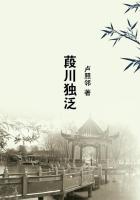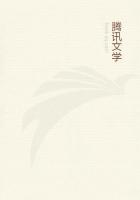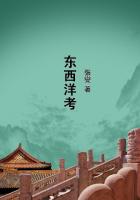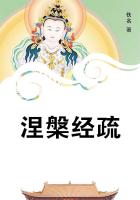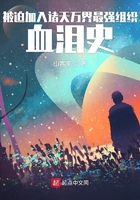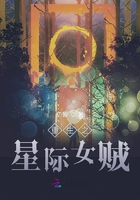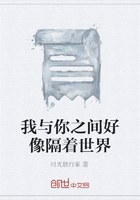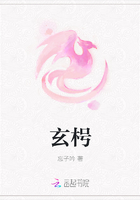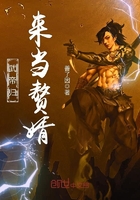It makes us nervous to see the shelves of new books, many of which we feel as if we ought to read, and some among them to study. We must adopt some principle of selection among the books outside of any particular branch which we may have selected for study. I have often been asked what books I would recommend for a course of reading. I have always answered that I had a great deal rather take advice than give it. Fortunately, a number of scholars have furnished lists of books to which the inquirer may be directed. But the worst of it is that each student is in need of a little library specially adapted to his wants. Here is a young man writing to me from a Western college, and wants me to send him a list of the books which I think would be most useful to him. He does not send me his intellectual measurements, and he might as well have sent to a Boston tailor for a coat, without any hint of his dimensions in length, breadth, and thickness.
But instead of laying down rules for reading, and furnishing lists of the books which should be read in order, I will undertake the much humbler task of giving a little quasi-medical advice to persons, young or old, suffering from book-hunger, book-surfeit, book-nervousness, book-indigestion, book-nausea, and all other maladies which, directly or indirectly, may be traced to books, and to which I could give Greek or Latin names if I thought it worth while.
I have a picture hanging in my library, a lithograph, of which many of my readers may have seen copies. It represents a gray-haired old book-lover at the top of a long flight of steps. He finds himself in clover, so to speak, among rare old editions, books he has longed to look upon and never seen before, rarities, precious old volumes, incunabula, cradle-books, printed while the art was in its infancy,--its glorious infancy, for it was born a giant. The old bookworm is so intoxicated with the sight and handling of the priceless treasures that he cannot bear to put one of the volumes back after he has taken it from the shelf. So there he stands,--one book open in his hands, a volume under each arm, and one or more between his legs,--loaded with as many as he can possibly hold at the same time.
Now, that is just the way in which the extreme form of book-hunger shows itself in the reader whose appetite has become over-developed.
He wants to read so many books that he over-crams himself with the crude materials of knowledge, which become knowledge only when the mental digestion has time to assimilate them. I never can go into that famous "Corner Bookstore" and look over the new books in the row before me, as I enter the door, without seeing half a dozen which I want to read, or at least to know something about. I cannot empty my purse of its contents, and crowd my bookshelves with all those volumes. The titles of many of them interest me. I look into one or two, perhaps. I have sometimes picked up a line or a sentence, in these momentary glances between the uncut leaves of a new book, which I have never forgotten. As a trivial but bona fide example, one day I opened a book on duelling. I remember only these words:
"Conservons-la, cette noble institution." I had never before seen duelling called a noble institution, and I wish I had taken the name of the book. Book-tasting is not necessarily profitless, but it is very stimulating, and makes one hungry for more than he needs for the nourishment of his thinking-marrow. To feed this insatiable hunger, the abstracts, the reviews, do their best. But these, again, have grown so numerous and so crowded with matter that it is hard to find time to master their contents. We are accustomed, therefore, to look for analyses of these periodicals, and at last we have placed before us a formidable-looking monthly, "The Review of Reviews." After the analyses comes the newspaper notice; and there is still room for the epigram, which sometimes makes short work with all that has gone before on the same subject.
It is just as well to recognize the fact that if one should read day and night, confining himself to his own language, he could not pretend to keep up with the press. He might as well try to race with a locomotive. The first discipline, therefore, is that of despair.
If you could stick to your reading day and night for fifty years, what a learned idiot you would become long before the half-century was over! Well, then, there is no use in gorging one's self with knowledge, and no need of self-reproach because one is content to remain more or less ignorant of many things which interest his fellow-creatures. We gain a good deal of knowledge through the atmosphere; we learn a great deal by accidental hearsay, provided we have the mordant in our own consciousness which makes the wise remark, the significant fact, the instructive incident, take hold upon it. After the stage of despair comes the period of consolation.
We soon find that we are not so much worse off than most of our neighbors as we supposed. The fractional value of the wisest shows a small numerator divided by an infinite denominator of knowledge.
I made some explanations to The Teacups, the other evening, which they received very intelligently and graciously, as I have no doubt the readers of these reports of mine will receive them. If the reader will turn back to the end of the fourth number of these papers, he will find certain lines entitled, "Cacoethes Scribendi."
They were said to have been taken from the usual receptacle of the verses which are contributed by The Teacups, and, though the fact was not mentioned, were of my own composition. I found them in manuscript in my drawer, and as my subject had naturally suggested the train of thought they carried out into extravagance, I printed them. At the same time they sounded very natural, as we say, and I felt as if I had published them somewhere or other before; but I could find no evidence of it, and so I ventured to have them put in type.

